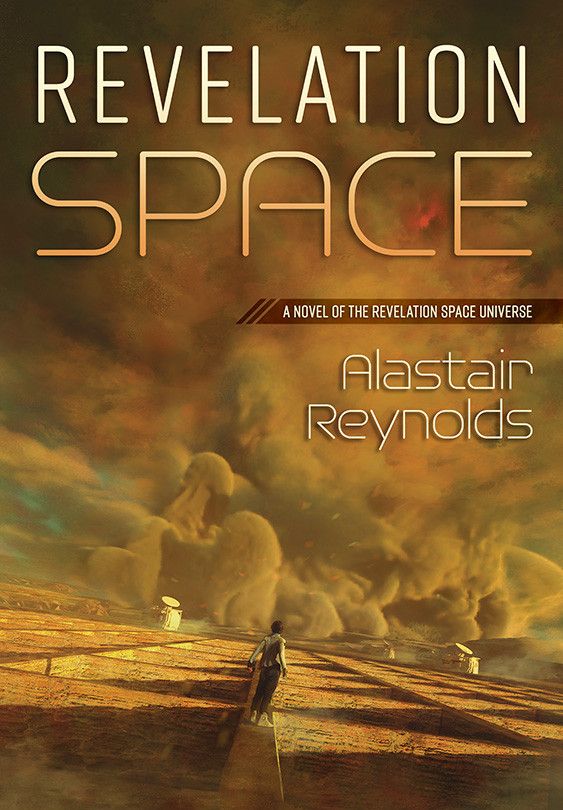Dust jacket, endsheets, and chapter head illustration by Marc Simonetti.
About the Book:
Redemption Ark will be oversized, printed in two colors throughout, on 80# Finch or equivalent.
The dead ship was a thing of obscene beauty.
So begins Redemption Ark, which continues the braided narratives begun when Alastair Reynolds made his triumphant debut with an instant classic of modern space opera, Revelation Space. However, the stories of the principal characters—the archaeologist-cum stellar consciousness Dan Sylveste, the assassin Khouri, and the weapons expert Ilia Volyova—are welcoming to new readers of the expansive universe. Familiarity with earlier works is not necessary to intensely engage with this sweeping epic.
While the narrative of richly drawn characters of various far-future human cultures play out on the galactic stage, the central mystery of the book—a central mystery of our own time, in fact—is the answer Reynolds proposes to a question raised by physicist Enrico Fermi in the middle of the 20thcentury; “Where is everybody?” Fermi was countering the notion that the galaxy should be, according to what is understand of the laws of nature, home to many advanced civilizations despite the lack of evidence of their existence.
In Redemption Ark, characters and cultures are confronted with the existence of a mysterious group of entities known as the Inhibitors, whose mission is to destroy any race that achieves faster than light travel. Sylveste, Khouri, Volyova, and others in the novel all have their own ideas about how to meet the threat of the alien Inhibitors, with conflicts and complications ensuing.
Alaistair Reynolds is an astrophysicist, and it is clearly important to him to discipline his story into something approaching possibility, even if that possibility takes him to the very edge of what is currently understood in terms of physics. His ideas, however, are deployed in ways that do not merely explain, but instead entertain even readers unfamiliar with advanced science.
Reynolds is the winner of the British Science Fiction Award and of the Seiun Award, Japan’s equivalent of the Hugo.


